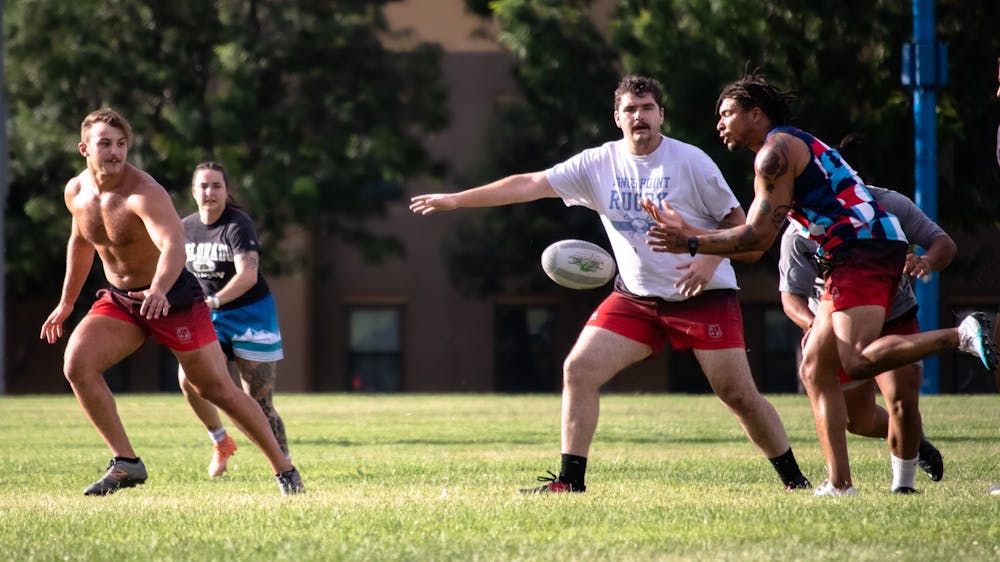The Albuquerque Aardvarks, established in 1973, meet weekly to practice rugby on Johnson field. The origin of the team's name has been forgotten, “Bear” said, but the story is that someone flipped through a dictionary to the first animal with the letter A, although nothing is certain.
Fables and stories are a common practice around the team, many also using rugby names like Bear or Chonch which originated out of college and high school rugby clubs.
Josh “Chonch” Lamb said the name stuck and just became what he was known as. Bear said that the name helped him on the field as well.
“When I first started playing rugby, I was timid,” Bear said. “Having a different persona to get more of my aggression out was really helpful for me because I could go be that other person.”
Team member Marlon Malave said the overall culture in New Mexico is really strong with three local teams present to play on a July 5 practice.
Compared to football, Malaver said it is more team-oriented where the members are less so playing one specific position that could be replaced, but working together in all aspects of the game.
“In rugby, you have to play everything. It never stops. And you don't have to replace somebody to play (for) you, you have to stay in all the time. So it's a lot more friendly, and the brotherhood that I guess that I was looking for,” Malave said.
Team member Daniel Garcia said that he has been able to grow up around the community of rugby players in New Mexico and anticipates the sport will increase in popularity across the country.
“We compete for sure, but we're also all a family out here which is kind of cool. I also grew up playing here in New Mexico, and I'm out here with a ton of people that I played with in high school or watched play as men when I was in high school,” Garcia said.
The gameplay is also very focused on rules to ensure safety on the field, which Malave said is a common misconception people have about the sport.
“A lot of people say that rugby is really brutal on your body. And it totally could be. But it's built into the rules to be safe. And a lot of the times when someone gets hurt, they did something wrong along the lines,” Malave said.
The close nature of the sport allows the team to bond and find community to support each other, Bear said.
Get content from The Daily Lobo delivered to your inbox
“(If you are struggling), you'll know that and I feel like everybody else will know that too. But they'll help you through it. And they'll help you as a team – you have to,” Bear said.
Maddie Pukite is the editor-in-chief at the Daily Lobo. They can be contacted at editorinchief@dailylobo.com on Twitter @maddogpukite






